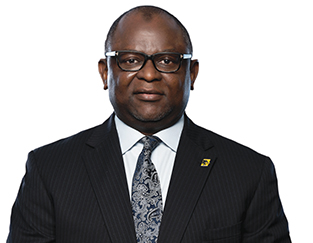On March 31, 2019, First Bank of Nigeria (FirstBank) celebrated the 125th anniversary of its founding. The bank, Nigeria’s oldest, has come a long way in that time, while remaining a fixture on the country’s financial sector landscape.
From its earliest days as the monetary and fiscal policy regulator for the west Africa region to the present, where the lender is pursuing pioneering digital product and service innovation, FirstBank has always played an outsized role in the Nigerian banking sector. Having weathered the worst of the commodity price downturn of recent years, the bank is now looking to the future. And FirstBank’s chief executive officer and managing director, Adesola Adeduntan, is keen to emphasise its direction of travel.
“We are 125 years old. In terms of age we look like an old bank but we are a young institution in terms of our DNA. We have age and experience on our side, but we are youthful in terms of workforce and ideas,” he says.
Gone digital
To this end, FirstBank is looking to a digital future. By the end of the third quarter of 2018, electronic banking contributions to non-interest revenues stood at 25.3%, up from 21.2% in the same period in 2017. More than 80% of the lender’s customers transact using digital banking channels with about 6.5 million using the USSD channel alone. In addition, the service offerings on the bank’s mobile platform, FirstMobile, have been expanded to include the provision of micro-loans.
FirstBank is hoping to replicate this success in the retail space in its corporate banking business. “What is a priority for us in 2019 is to ensure that in the corporate banking space we achieve the same level of digitisation,” says Mr Adeduntan.
To reach its digital objectives, FirstBank is looking to its people. By bringing young graduates into its workforce, the bank is hoping to inject fresh ideas into its ranks with the knowledge and tech awareness to push its ambitions to the next level. “We have brought in more than 700 fresh graduates and that is part of the rejuvenation of the bank. We want to bring in fresh blood and new ideas,” says Mr Adeduntan.
In common with a number of other Nigerian lenders, FirstBank is also pressing ahead with its ambitions in the realm of artificial intelligence (AI). Through this, Mr Adeduntan hopes to reduce the bank’s cost-to-income metrics over a long-term time horizon. The lender’s cost-to-income ratio has climbed in recent times, reaching 59.5% by the end of the third quarter of 2018 from 53.4% over the same period in 2017. “Large [financial] institutions such as FirstBank have a lot operations that marry well with AI and machine learning. We process 150 million transactions every month, for example, and we use AI to help us with that. Machines and technology can work non-stop with no incremental costs,” says Mr Adeduntan.
Growth prospects
Mr Adeduntan remains upbeat about the prospects for Nigeria’s economy, as well as the untapped growth prospects in the bank’s home market. Noting that the country’s economic growth remains below the average for sub-Saharan Africa, he sees an opportunity for an improved 2019 as a number of positive factors, including a higher price of oil, contribute to a promising near-term horizon.
“We are of the view that the economy will grow in the course of 2019, and we expect it to really kick into gear later in 2019,” says Mr Adeduntan.
Nevertheless, key challenges remain. For one, competition in Nigeria’s banking sector is likely to deepen as consolidation between some larger institutions occurs – the recent deal involving Access Bank and Diamond Bank offering a case in point. This is happening as a number of the country’s second-tier banks, as well new fintech start-ups, are coming into the market with niche and highly innovative offerings, particularly in the retail sector. “The competition is getting stronger and steeper. But a bank like ours is used to this. We remain confident in our ability to lead the market,” says Mr Adeduntan.












